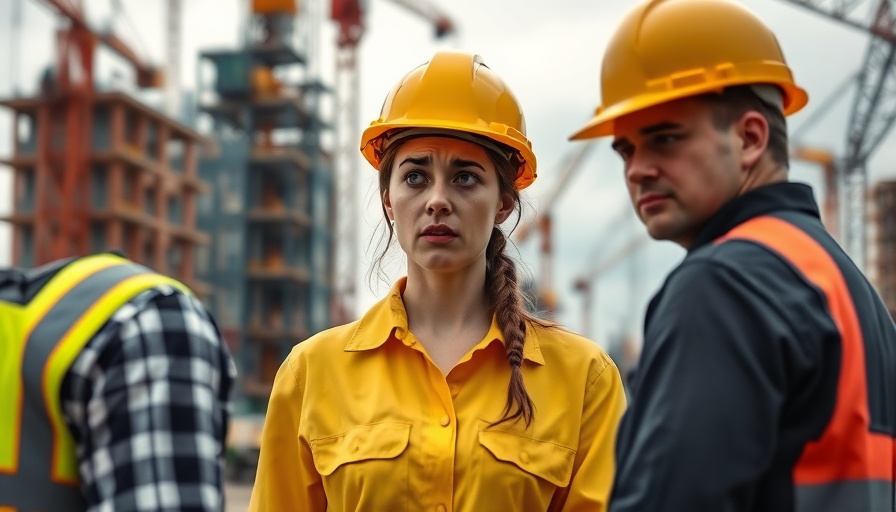
Understanding the Alarming Reality of Sexual Harassment in Construction
A recent survey conducted by the Unite union has brought to light the shocking prevalence of sexual harassment in the UK construction sector. According to their findings, a staggering 31% of women construction workers reported experiencing sexual assault at work, highlighting an urgent need for change.
The survey encompassed responses from many women across various sectors, but the construction industry was specifically alarming. Alongside the 31% who faced sexual assault, 54% reported being inappropriately touched. Furthermore, 17% experienced sexual coercion—pressure or manipulation into unwanted sexual activity—which indicates deeply troubling patterns of behavior in a field traditionally dominated by men. Sadly, the data shows that 76% of these incidents go unreported, stemming from fears of disbelief, job security, and the potential victimization from peers.
Sexual Harassment: A Silent Epidemic
Sexual harassment in the workplace is not just a personal struggle but a systemic issue that requires collective action. The Unite survey revealed that the frequency of harassment is alarming, with 51% of those harassed experiencing it multiple times. A significant portion of respondents expressed frustration over their experiences not being taken seriously. For instance, one woman recounted an incident where her reporting of a colleague's inappropriate behavior led to retaliatory mockery rather than accountability.
Sharon Graham, Unite's general secretary, emphasized that these findings expose a disturbing reality; thus, the union's Zero Tolerance campaign aims to eradicate workplace harassment. The initiative is a call to action for employers to prioritize worker safety, which is crucial not only for women but for the culture within the entire workforce.
Barriers to Reporting: The Culture of Silence
Many women hesitate to report harassment due to fears of being disbelieved or facing retaliation. Only 8% of those who complained felt their issues were addressed by management. In an industry already plagued by a hostile environment for women, the thought of potentially losing their jobs only compounds the violence of silence.
The difficulty many women face, as highlighted by respondents in the survey, illustrates not only the challenges of speaking out but also the urgent need for a cultural shift within the construction industry. A respondent whose harassment sparked a complaint said, "I confided in my boss, and the next morning I was fired. It devastated me." Her story underscores how sometimes, taking a stand can result in isolation rather than support.
Creating Safe Spaces for Women in Construction
Women's experiences in construction reveal gaps that demand immediate attention. Issues like inadequate changing and bathroom facilities compound the harassment problem by making women more vulnerable in these private spaces. Women have expressed the need for well-designed facilities that cater to inclusivity rather than a male-dominated environment.
Addressing these aspects is a crucial step toward a safer workplace, and each industry stakeholder must contribute. Companies can take inspiration from those implementing progressive policies in other sectors, ensuring safety and respect for employees at all levels.
Future Outlook: A Call for Change in Construction Culture
It's evident that for significant change to occur, consciousness about workplace culture must evolve. Awareness campaigns like Unite's Zero Tolerance initiative are just the beginning. The construction industry can look towards successful movements in other fields that emphasized personal narratives, which help quantify the experiences and advocate for change effectively.
With sexual harassment remaining a silent epidemic, the focus moving ahead must center on creating systemic changes that protect vulnerable workers and foster a respectful and inclusive work environment.
For young homeowners interested in construction, recognizing these issues is crucial. Engaging in discussions about the importance of safe working environments not only elevates the discourse but also lays the groundwork for a paradigm shift. Consumer engagement can influence demand for companies valuing worker safety, ultimately contributing to lasting change in the sector.
So, what can you do? As a homeowner involved in the construction or renovation of your property, advocate for safety standards that support all workers and challenge companies who do not prioritize their employees' welfare. Your voice helps shape a safer future for all.
 Add Row
Add Row  Add
Add 





Write A Comment